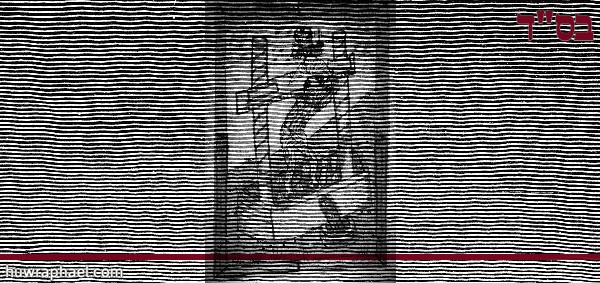
IC XC
✙
NI KA
In the LXX Psalter Pss 8, 80, & 83 (Hebrew numbering Pss 9, 81, and 84) all have the superscription εἰς τὸ τέλος ὑπὲρ τῶν ληνῶν, translated as “for the end, concerning the winepresses”. In the MT Psalter the text is לַמְנַצֵּ֥חַ עַֽל־הַגִּתִּ֗ית “for the leader, on the gitit”. Notes suggest that last word might be a musical instrument. But it’s certainly nothing to do with the the Greek ληνῶν.
“Concerning the winepresses”. A lot of Psalms begin with this superscription on the LXX. Equally, many begin with, “for the end.” St Gregory of Nyssa, meditating on the superscriptions, suggests that “For the end” is to be taken as pointing to our final judgement or, more correctly, our final end – our “telos”. Theosis, divinization, is our final end. Humans are made to share the life of God. This “to the end” heading is on Psalm 50, for example. Repentance makes us more like God by turning our failures into offerings to him.
The winepress image is related to our struggles in this life, the things that “squeeze out the juice” from us and let it ferment (with the help of the ‘new leaven’ of the Gospel) into wine suitable for the Kingdom Banquet, the Eucharist of our Lives. This self-emptying action of submitting to the “winepress” makes us a parallel to our Lord, as shown in the very gory, Western image that heads up this post and is below as well.

Thus, only Psalms 8, 80, and 83 – which begin with “To the end” and “Concerning the Winepresses” together are to be read as being about the final end of our humanity – theosis – as related to our present experiences “squeezing out” the good stuff. When life sucks and it’s doing the work God gave it to us for – to make us more like him – then the secret to navigation is here. What do we find?
Psalm 8 is a glorious text praising God and asking “Why do you even care about us human beings?” You are glorious beyond all things and you have taken us creatures of mud and slime and shared with us your rulership over the earth and all the creatures. You, Lord, are glorious. “What is man, that you think of him? What is the son of man, that you care for him? You make him ruler over the works of your hands. You have put all things under his feet: Lord, our Lord, how majestic is your name in all the earth!” This Psalm is about our final end, our telos, and about praising God for the calling he has given us as the bearers of his Divine Image.
The 80th Psalm follows hard with an acknowledgement that life is not as glorious as all that: we’ve been enslaved like Israel in Egypt. Left to ourselves, we are trapped in our sin and unable to do aught but – through his grace – call out to him. Then, “You called in trouble, and I delivered you. I answered you in the secret place of thunder. I tested you at the waters of Meribah.” And we find out that – through his grace – even the tortures and changes of this life are him reaching out to us. “So I let them go after the stubbornness of their hearts, that they might walk in their own counsels… ” Those who hate God will cringe forever but Israel (that is, the Church) he would “feed with the finest wheat and honey from the rock.” That is, the Eucharist.
When we turn to the last of these three, the 83rd Psalm, it is all swallowed up in the House of God, the Church, the Body of Christ, and the human person, the Temple of the Holy Spirit. “How lovely are your dwellings O Lord of Hosts! My soul longs and faints for your courts, my heart and flesh sing for the joy of you! For a day in your courts is better than a thousand. I chose to be cast away in the house of God rather than to be dwelling in habitations of the sin.”
In these three texts we find God leading us to our final end – even in the midst of the winepresses of our suffering. God is here, filling our mouths with our daily bread and giving us what we need to receive to grow ever more into his image and likeness. And we find our correct response: giving him glory and praise or, as the Apostle puts it, “In all things, Thanksgiving.”

You must be logged in to post a comment.